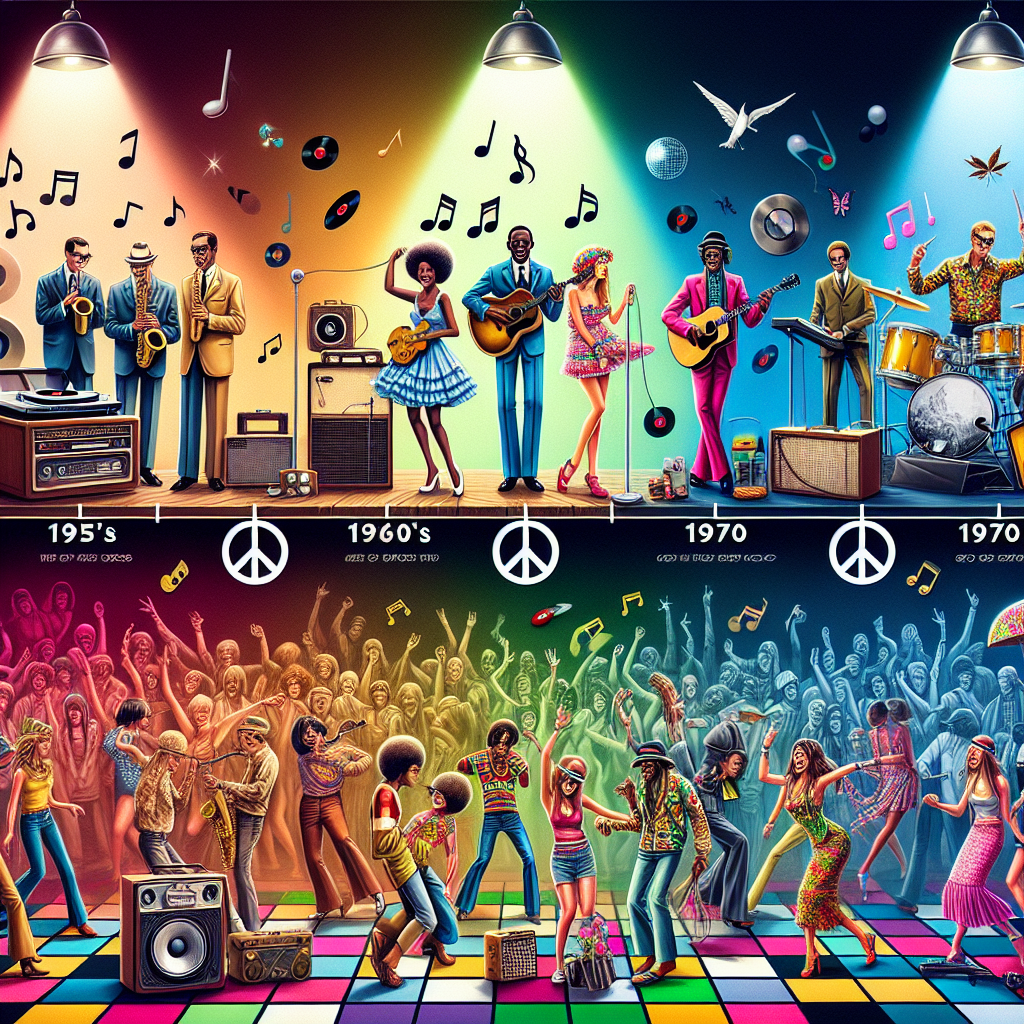Disco Fever: A Look Back at the Rise and Fall of Disco in the 70’s
Disco music, with its infectious beats, flashy lights, and high-energy dance moves, took the world by storm in the 1970s. It was a cultural phenomenon that transcended music and infiltrated every aspect of society, from fashion to technology. Let’s take a trip down memory lane and explore the rise and fall of disco in the 70’s.
The Music
At its core, disco music was all about having a good time. With its pulsating bass lines, funky guitar riffs, and catchy melodies, disco songs were designed to get people up on their feet and dancing the night away. Artists like Donna Summer, Bee Gees, and Gloria Gaynor ruled the charts with their infectious tunes that became anthems for a generation.
The Culture
Disco culture was more than just music – it was a lifestyle. Nightclubs like Studio 54 in New York City became meccas for disco lovers looking to see and be seen. The fashion was glamorous and over-the-top, with sequins, bell-bottoms, platform shoes, and big hair dominating the scene. Disco became a symbol of freedom and self-expression for many who felt marginalized by mainstream society.
The Politicians
Even politicians couldn’t resist the allure of disco fever. In 1978, then-President Jimmy Carter hosted a White House dinner for Egyptian President Anwar Sadat that featured performances by none other than John Travolta and his Saturday Night Fever co-stars. Disco had officially gone mainstream.
The Fashion
When you think of disco fashion, images of glittering disco balls, polyester suits, and platform shoes probably come to mind. The fashion industry embraced disco wholeheartedly, with designers like Halston creating iconic looks that defined an era. Disco fashion was all about making a statement – the bolder, the better.
The Technology
Disco wouldn’t have been possible without advances in technology that allowed for new soundscapes and production techniques. The advent of synthesizers and drum machines revolutionized how music was made, giving birth to a whole new genre that would influence generations to come.
A Positive Outlook on Disco Fever
Despite its eventual decline in popularity towards the end of the decade due to backlash from rock fans and critics alike (hello “Disco Sucks” movement), there’s no denying that disco left an indelible mark on music history. Its influence can still be heard today in genres like house music and EDM.
So let’s raise our glittering disco balls high and celebrate the legacy of disco – a time when music brought people together on dance floors around the world in an explosion of color, sound, and joy.


Get involved!
Comments